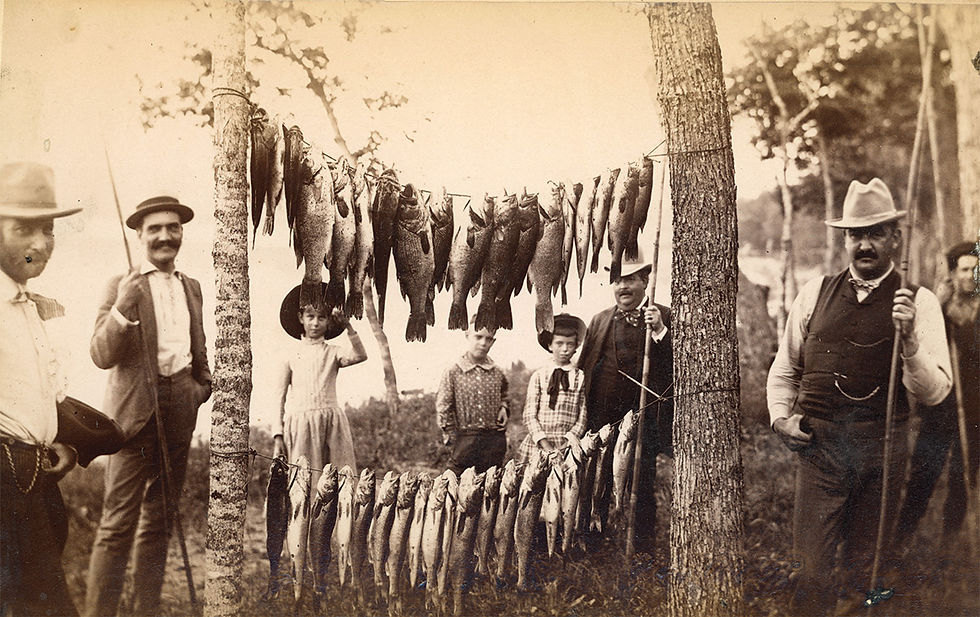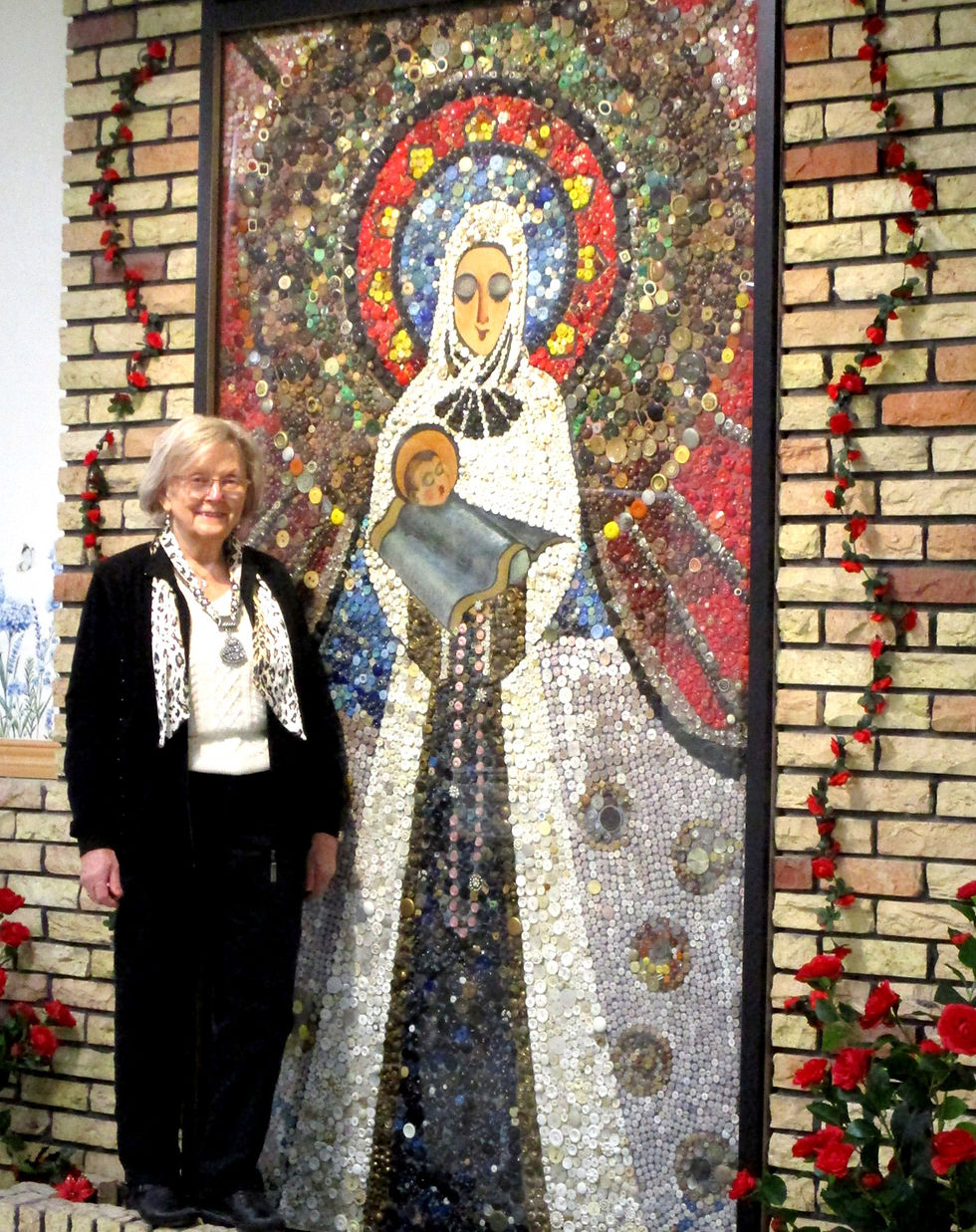Serving... any way she could
- Sr Perspective

- May 2, 2022
- 5 min read
Morrison County woman served during WWII, Korean War
By Jennie Zeitler

Long after heroes return to dust, we who are left remember and are inspired by their dedication and devotion to their country, their hard work, and their deep loyalty. World War II and Korean War veteran Arlene Skrock is one such hero. She lived a life of service, which was in part a result of the culture in the United States during her childhood. It was also a natural progression for a woman who grew up in a highly patriotic family.
“She took up the mantel from our parents,” said Arlene’s sister, Jackie Scherer of Alexandria, Virginia. “She was very patriotic.”
Arlene was born in 1922 in New Jersey, the eldest child in a family that embodied the melting pot of an America filled with immigrants. Her mother, Agnes Reilly, was from a poor Irish Catholic family in New Jersey. Her father, Louis Hyman, was from a Russian Jewish family on Long Island.
Both Louis and Agnes served during World War I. Agnes was a nurse, and Louis joined the Army after graduation from Columbia University and a sanitation course at Yale. The war ended before Louis could be assigned overseas. The two met when Agnes was assigned to help Louis with his discharge from the Army.
Following the war, Agnes was instrumental in forming an American Legion post for women near her home. Louis’ service was not finished. After Pearl Harbor, he received a phone call from the Army requesting his services in Africa, doing sanitation work. He was back in uniform for three years, until malaria forced his discharge. But the government wasn’t done with him yet; he went to Peru and Guatemala to get more quinine for the malaria which plagued the troops.
Arlene naturally took on the heritage of her family of service.
“She was very active in school,” Jackie remembered. “She often got into controversial arguments about politics. She was perky. Able to stand up to things. She was pretty tough, but she had a lot of fun in life, too.”

Immediately following Pearl Harbor, when she was 19, Arlene joined the Navy as part of the WAVES program (Women Accepted for Volunteer Emergency Service). She started out with the rating of “radioman.” She trained at Fort Monmouth, New Jersey, and then was assigned to Seattle.
“She was doing coding work. She had a very good memory, which helped, because the code changed every week,” said Jackie. “She had to do a lot of memorizing.”
Arlene was one of many WAVES and WACS (Womens Army Corps) in the military, a groundbreaking time for the service.
"They changed the military,” said Jackie. “For one thing, the military had to rethink and rework how survivor benefits were given. Surviving husbands hadn’t been considered before that.”
Arlene’s patriotism and dedication to duty stood her in good stead.
“She was very intelligent and she worked very hard,” said Jackie. “When she left the Navy in 1945, they gave her an award for her service, but there was no information about her activities.”
The award said, “For service to the U.S. Navy Communication Intelligence Organization… Because of the nature of the services performed by the unit, no publicity was given” regarding details.
Between World War II and the Korean War, Arlene was in the Navy Reserve. She also held a variety of jobs in New York City.
“During the Korean War, she was stationed in Seattle,” said Jackie. “It was all very secret and she never talked about it.”
After Korea, Arlene joined the CIA. Jackie is not aware of how that came to be, but it’s easy to see that “the skills she had were needed.” While in the CIA, Arlene was first sent to Germany. It was there she met Gerald Skrock of Royalton, Minnesota. He had joined the Navy in 1930, and eventually joined the CIA.
Both were assigned to Japan and married there in 1957, in two different ceremonies.

There was a military ceremony, with both Arlene and Gerald in uniform. Then, there was a civilian ceremony.
“Our father was the only one from our family who could be there,” said Jackie.
“She wore a tea-length white dress then,” said Bonnie Becker, who worked with Jackie for 11 years at Morrison County Social Services.
After Japan, Arlene and Gerald were assigned to Cairo, Egypt. They both retired in about 1961 and moved to Royalton.
Arlene worked for Morrison County Social Services for 25 years. When Bonnie started working there, Arlene was supervisor of eligibility workers. Then Arlene took on the pilot program of a new legislative initiative on child support and Bonnie was her assistant.
“We worked the bugs out of the program,” said Bonnie. “I was her assistant until she retired in the mid-1980s. She was very well-liked at work. She truly cared about her staff.”
Bonnie became quite good friends with Arlene. They spent time together outside of work and got to know each other better.
“Her home was like a museum, with artifacts from her travels,” said Bonnie. “She had a gorgeous low ornately-carved table from Egypt. There were hand-carved nesting balls made of ivory. They didn’t come apart, but had been carved inside each other.”
Bonnie still has two prayer books that Arlene got during a visit to Jerusalem. Arlene had originally given one to her mother, and kept the other for herself. The front and back covers are made of olive wood.
“Arlene never cooked. Gerald did all of the cooking, and he always served her breakfast in bed,” said Bonnie. “She was not a housekeeper or a homemaker. She was a very independent person and not afraid to speak up for herself.”

Arlene and Gerald travelled a lot, especially to Reno or Las Vegas. Gerald died in 2000.
“She loved the ocean. She would have lived by the ocean if she could have,” said Bonnie.
Bonnie remembered that Arlene always wore dresses or skirts, never slacks.
Arlene had extensive collections. This included a huge LP record collection, many Hummel figurines, Wedgewood, and other collector plates.
Arlene was a widow for her last 18 years, but living on her own didn’t seem to be a problem for her.
“She had very loyal friends, who were lifelong friends. She enjoyed going to the casino. I went with her often,” Bonnie remembered.
In her last years, she developed dementia. Bonnie drove her to the VA Hospital in St. Cloud one morning and she was never able to go back home again. She lived her last years at Highland Senior Living in Little Falls.
After her death in 2018, Arlene was buried in uniform, but that didn’t include her hat. Bonnie has that hat among her mementos.
Bonnie recalls Arlene tapping out Morse code, but Arlene was quite secretive about sharing anything she had done in the Navy or the CIA.
“Her loyalty to her country was phenomenal,” Bonnie said. “She slipped one time when we were in the car. She gasped and told me sternly not to breathe a word of what she had said, but I told her that I didn’t understand a thing she had just said! She took her secrets to the grave.”




Comments